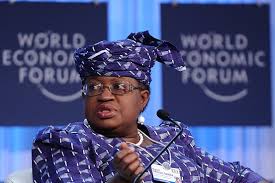Two weeks ago, some 31 Nigerian company chief executives and business owners got together to form a council that will enable them jointly promote sustainable development across the country. This was the outcome of a round table discussion held in Lagos at the weekend. Ordinarily, this would have been a welcome development. However, the claim by members that they lack the platform through which they could intervene in the economy is spurious, suspicious and very dubious. The fact that it was championed by Shell Managing Director makes it worse.
Shell operations globally are known to have telling spillover effect on the community it operates and in almost every situation, it required litigation for it to respond to the cries of those who are affected adversely by its operations.
The leaders of these companies – Accenture, Coca-Cola, Empretec Nigeria Foundation, Etisalat, First Bank, Flourmills of Nigeria, Heirs Holdings, Intel Corporation and Interswitch, Standard Chartered Bank, Unilever, the First Bank CSR Centre, BusinessDay Newspapers, Emzor Pharmaceutical Industries Ltd, MTN Nigeria, Guinness, Oando Gas and Power, UBA Group, Seplat Petroleum, Chevron, Stanbic IBTC, Afren Nigeria, Access Bank and Nigerian Breweries, are well aware of the existence of the three arms of the organised private sector. For years, Nigerian organised private sector had operated through Manufacturers Association of Nigeria, MAN, Nigerian Association of Chambers of Commerce, Industry, Mines and Agriculture, NACCIMA, and Nigerian Employers Consultative Assembly, NECA. In recent years, the Nigerian Small and Medium Enterprise Association, NASSI came into existence. This is aside the numerous bilateral chambers of commerce that dot the nation’s economic landscape.
The great challenge facing the Nigerian economy is the discordant voices coming out of the so-called organised private sector.
Every so often, instead of the operators in the sector to pull their resources together to foster the growth and development of the sector, sectors that are looking to government for a particular favour team up under some name to approach government. Once the need is met, the leader ditches the organisation.
In the heydays of the Babangida administration, in the name of promoting economic diplomacy, several private sector organs sprang up. The one that is worth mentioning is the G15 council. That body was the eyes and ears of the military administration. Today, the so-called South-South Economic Cooperation Nigerians were told the council was out to promote, got nowhere. The bilateral chambers that the diplomacy encouraged to spring up are as good as dead.
Nigerians are good at answering president and leader but not in service delivery.
The 31 business leaders agreed on the establishment of a common platform that will enable them to jointly promote sustainable development initiatives and programmes across the country. At the roundtable in Lagos, the CEOs decided to set up a council for sustainable development which will be affiliated to the Geneva-based World Business Council for Sustainable Development (WBCSD).
Are these 31 leaders not members of Lagos Chamber of Commerce and Industry or MAN? Why in the world do they need a new platform if they have a genuine interest of the private sector at heart? Were these same people not the promoters of the Nigerian Economic Summit? Are they tired of the various bodies that they are part of?
The proposed council as they claim will work to arouse the interest of the Nigerian business community towards taking collective action for a sustainable future for society.
What has been the role of the various chambers of commerce and industry in the country? Will it not have been better for these men to join and strengthen the existing bodies and reduce the discordant voices in the private sector?
In other countries where the private sector is taken seriously, they have one body that speaks for the organised private sector. These bodies elsewhere have well funded institutions that provide alternative source of data on the economy. They can generate reliable data from members across board and can authoritatively challenge government data. This is the situation in the US where the US Chamber of Commerce and Industry can authoritatively challenge government on trends in the economy. It is the same in Britain, Germany and the Netherlands to mention a few.
Why is the Nigerian private sector so fragmented that nothing serious can come out of it?
The only reason is because almost all the successful businesses in Nigeria enjoy government patronage and the advantages it confers on them through waivers and concessions.
The Managing Director of Shell Petroleum Development Company of Nigeria Ltd (SPDC) and Country Chair, Shell Companies in Nigeria, Mutiu Sunmonu, had hosted the roundtable to introduce the idea to the CEOs. He said: “There is no doubt that Nigerian companies support sustainability programmes in their respective areas of influence quite adequately, however, no platform currently exists for businesses across all industries to share experiences, best practices, and advocate for business positions that transform lives and communities from what they are today to the greatness they can be, tomorrow. If there is one area we do not need to compete as businesses, it is in the goodness of our heart to our society and environment.”
This coming from Shell executive should be taken with a pinch of salt. The Nigerian private sector operators should hide their faces in shame, come down from their high horses and come under a single private sector umbrella that will have the capacity to affect Nigerians positively. This they can do by pulling resources together to set up structures that can generate accurate data on the progress made in the economy.

